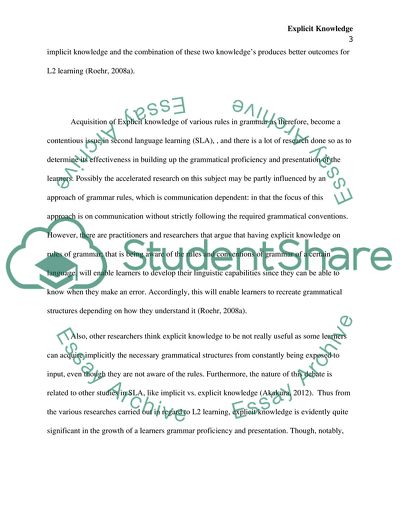Cite this document
(The Benefits and Limitations of Explicit Knowledge Essay, n.d.)
The Benefits and Limitations of Explicit Knowledge Essay. Retrieved from https://studentshare.org/education/1808521-explicit-knowledge-about-the-l2-and-working-on-grammar-in-the-l2-classroom
The Benefits and Limitations of Explicit Knowledge Essay. Retrieved from https://studentshare.org/education/1808521-explicit-knowledge-about-the-l2-and-working-on-grammar-in-the-l2-classroom
(The Benefits and Limitations of Explicit Knowledge Essay)
The Benefits and Limitations of Explicit Knowledge Essay. https://studentshare.org/education/1808521-explicit-knowledge-about-the-l2-and-working-on-grammar-in-the-l2-classroom.
The Benefits and Limitations of Explicit Knowledge Essay. https://studentshare.org/education/1808521-explicit-knowledge-about-the-l2-and-working-on-grammar-in-the-l2-classroom.
“The Benefits and Limitations of Explicit Knowledge Essay”. https://studentshare.org/education/1808521-explicit-knowledge-about-the-l2-and-working-on-grammar-in-the-l2-classroom.


